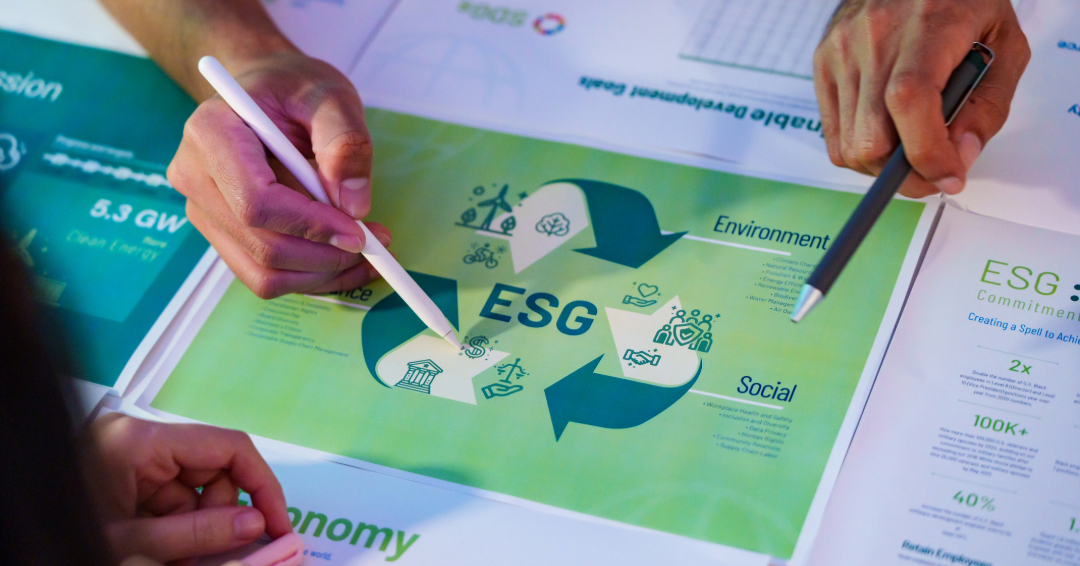5 critical mistakes in sustainability communication
Communicating your company's sustainability performance is no longer just an option - it's a necessity. But as pressure mounts on companies to take more responsibility for environmental and ethical aspects, there is a risk that they overstate their efforts, which can lead to a loss of customer trust. At the same time, there is growing concern about making mistakes and being caught out, resulting in many companies communicating too little, or not at all. This creates another problem - that important sustainability issues are overshadowed.
We want to encourage companies to use communication as a tool for transition, to avoid both greenwashing and greenhushing. In this blog post, we therefore list some of the most common mistakes in sustainability communication and give our thoughts on how you can avoid them.
#1 Using vague expressions
One of the most common mistakes in sustainability communication is to use vague or exaggerated claims such as 'eco-friendly' or 'sustainable'. Although not intentional, it can easily be interpreted as greenwashing, especially if the claims are not backed up with concrete evidence.
Example:
- In 2022, H&M was sued for misleading its customers into believing that its 'Conscious' collection was more environmentally responsible than it actually was. The lawsuit claimed that the claims violated consumer protection laws, as the garments were still largely made from materials such as polyester and recycled plastic, which have a negative environmental impact. Read more here
Our advice:
- Be specific, honest and transparent in your communication. It's not enough to say that your company has reduced its carbon emissions - also state how much you have reduced and what methods you have used. Avoid sweeping terms and focus instead on measurable and verifiable results.
#2 Not including the whole business
Another common mistake is to highlight only certain aspects of your business in your sustainability communication, while leaving out other aspects that are not as sustainable. This can lead to an unbalanced picture and create mistrust among your stakeholders.
Example:
- Shell has been criticized for promoting its investments in renewable energy, while the majority of its operations remain heavily dependent on fossil fuels. This creates an unbalanced picture of the company's true impact on the environment. Read more here.
Our advice:
- Strive to include the whole organization in the sustainability work, and communicate both successes and challenges. Be open about where you are today and what areas you are continuously working to improve. This shows that you take responsibility and in turn builds trust in both the company and the brand.
#3 Lack of monitoring and reporting
Many companies have high ambitions when setting their sustainability targets, but then forget to follow up and report on progress - and mistakes. This can make the targets seem like empty words, undermining trust.
Example:
- Volkswagen is a clear example where the company lost trust after the 'dieselgate' scandal in 2015. They promoted their diesel cars as environmentally friendly, in their 'Clean Diesel' campaign, but it was later revealed that the company manipulated emissions tests, resulting in a major crisis of confidence. Read more here.
Our advice:
- Include regular reporting as part of your communication strategy, outlining your progress and any deviations from targets. Sharing both positive and negative results shows that you are committed to your sustainability strategies and are working on continuous improvement to reach your targets.
#4 Ignoring stakeholder perspectives
Companies that communicate their sustainability goals without taking stakeholder views into account risk missing important insights. Customers, employees, investors and the industry at large all have different expectations of what sustainability means, which also affects how sustainability efforts should be communicated.
Example:
- Coca-Cola has been heavily criticized by environmentalists and consumers for its plastic packaging. Despite their commitments to improve recycling programs, many have considered their actions insufficient, which has negatively affected the company's reputation. The company remains one of the world's biggest plastic polluters. Read more here.
Our advice:
- Engage different stakeholders also in the communication of your sustainability strategies. Listen to their opinions and let their feedback be part of how you communicate your sustainability efforts. This can help to create a more credible and effective dialog that increases the impact of your initiatives.
#5 Not training and involving employees
Sustainability communication can often become a management issue, while the rest of the organization is not sufficiently involved or trained in sustainability issues. This in turn can often lead to employees not acting in line with the values you communicate in your sustainability strategies, damaging trust in the company.
Example:
- BP became known for its green 'Beyond Petroleum' campaign, promoting itself as a leader in sustainable energy. But after the Deepwater Horizon oil disaster in 2010, it became clear that the company's internal processes and safety culture did not match its public image. Read more here.
Our advice:
- Educate and involve the whole company in sustainability work. Ensure that everyone understands and is familiar with the sustainability goals and knows how they are expected to contribute to them in their daily work, in order to feel confident about what is being communicated. Well-informed and engaged employees are a crucial factor in realizing the communication strategy.
So to sum up
Effective sustainability communication is about transparency, honesty and engagement. By navigating past common mistakes such as vague statements, lack of follow-up and not involving the whole organization, companies can both build trust and strengthen their brand. But also recognize that sustainability communication is a long-term journey - it's always better to be honest about where you are today and show that you are heading in the right direction, than to exaggerate your successes.
Would you like to discuss how to improve your sustainability communication?
Contact us!

Related posts

What does the ESEF mean for your next annual report?
There is now a new EU-adapted rule on electronic reporting for Swedish listed companies. Instead of a PDF, companies must now submit the annual report in XHTML format together with the company's XBRL taxonomy to the Swedish Financial Supervisory Authority. Does it sound complicated? Don't worry, we'll try to clarify the concepts.

Time to take your annual report to the next level?
An annual report today is so much more than just numbers and financials. For many companies, it is one of the most important tools for describing the journey ahead, the purpose, the vision and the core business to an increasingly wide audience. This in turn places new and tougher demands on design, layout and accessibility.

Sustainability reporting - what does it really mean?
In a world where sustainability is no longer a choice but a given, sustainability reporting can be a powerful tool - both to demonstrate transparency and compliance, and to build brand, create trust and drive business. At Navigator, we see sustainability reporting as an opportunity to strengthen trust, by engaging, explaining and inspiring. But what rules are new and what will the future hold?